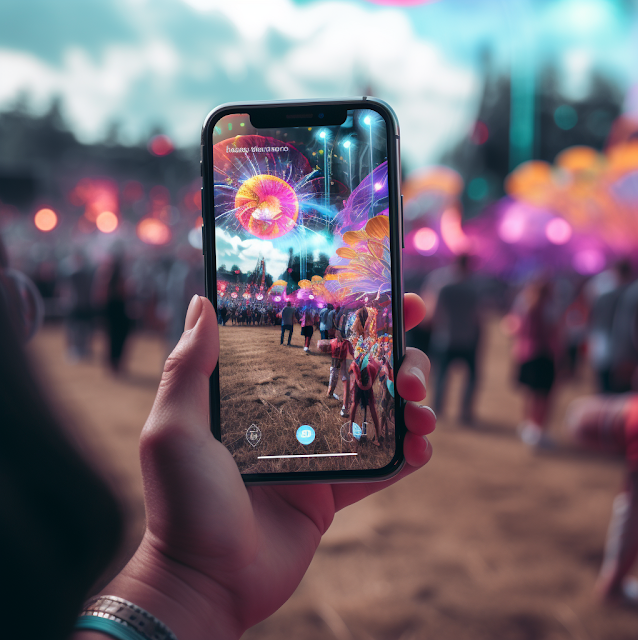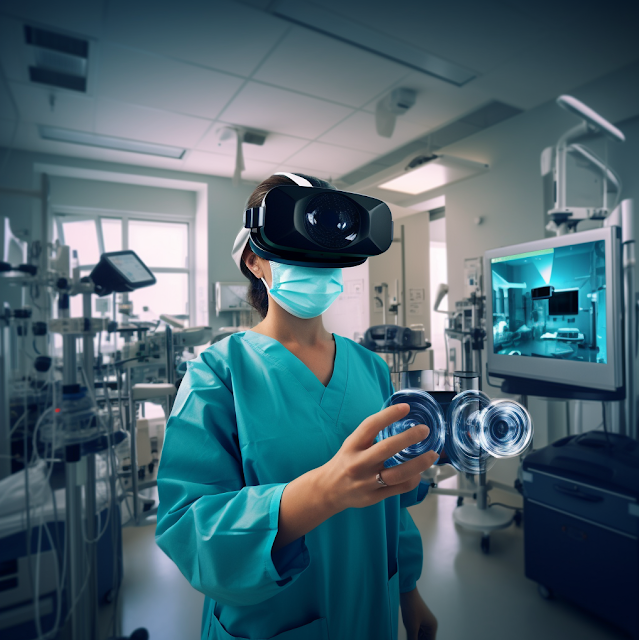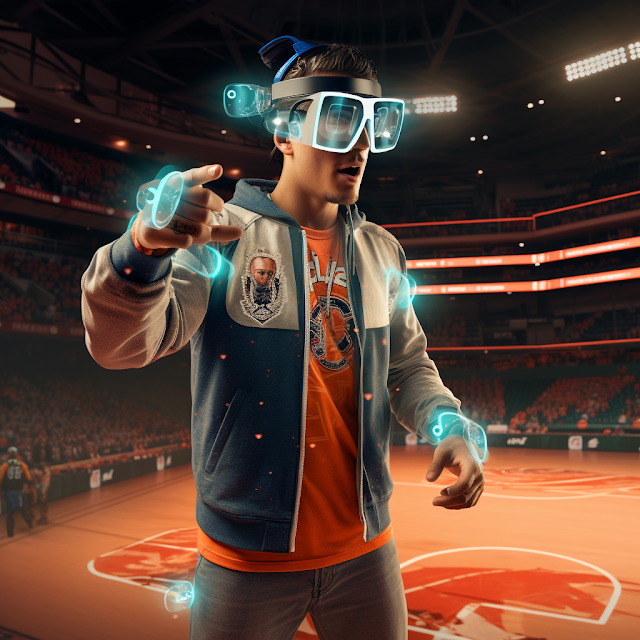Augmented Reality at Music Festivals and Events: The Future of Immersive Entertainment
Augmented Reality in Music Festivals: The Basics
Augmented reality is a technology that overlays digital content, such as visuals, animations, or information, onto the real-world environment. In the context of music festivals and live events, AR is often accessed through smartphones or AR glasses, providing users with interactive and immersive experiences that complement the live performances.
Applications of Augmented Reality at Music Festivals and Events
Enhanced Stage Shows: AR can be used to create breathtaking visuals that synchronize with live music performances. Artists and DJs can incorporate AR elements into their shows, providing audiences with mesmerizing visual effects and enhancing the overall experience.
Interactive Festival Maps: Festival-goers can use AR apps to navigate large event spaces easily. AR-generated arrows and signs can guide attendees to different stages, restrooms, food vendors, and more.
Virtual Art Installations: Music festivals often feature art installations, and AR can bring these artworks to life. Users can view sculptures, paintings, or murals through their devices, and the art can transform or react to their movements.
Interactive Merchandise: Festival merchandise can become interactive through AR. Fans can scan apparel or products to access exclusive content, discounts, or virtual experiences related to the event.
Live Music Discovery: AR apps can provide festival-goers with real-time information about the performers on stage, including their biographies, discographies, and links to streaming platforms.
Benefits of Augmented Reality at Music Festivals and Events
Immersive Experiences: AR adds an extra layer of immersion to live events, making them more captivating and memorable.
Engagement: Festivals can keep attendees engaged and entertained throughout the event with interactive AR experiences and games.
Accessibility: Festival-goers can use AR to access important information and services, such as first aid locations or lost and found stations.
Personalization: AR apps can tailor experiences based on user preferences, providing personalized content and recommendations.
Marketing Opportunities: Brands and sponsors can leverage AR for creative marketing campaigns and promotional activities during events.
Challenges and Considerations
While AR offers tremendous potential for music festivals and events, some challenges should be addressed:
Device Compatibility: Attendees need AR-capable devices to access these experiences, which may limit accessibility.
Privacy and Data Security: Collecting and using personal data for AR applications must prioritize user privacy and comply with data protection regulations.
Cost and Investment: Implementing AR technology can be costly, and festivals must weigh the investment against the expected benefits.
Technical Challenges: The success of AR experiences depends on reliable network connectivity, which may be challenging in large festival settings.
Conclusion
Augmented reality is redefining the music festival and live event experience, adding layers of interactivity and immersion that were once unimaginable. As technology continues to advance, we can expect even more creative and awe-inspiring uses of AR at festivals. Whether you're an artist looking to create a stunning stage show, a festival-goer seeking a personalized experience, or a brand aiming to engage with a passionate audience, augmented reality has become an essential tool in the world of live entertainment. The future of music festivals and events is undoubtedly augmented, promising a new era of unforgettable experiences for all who attend.





